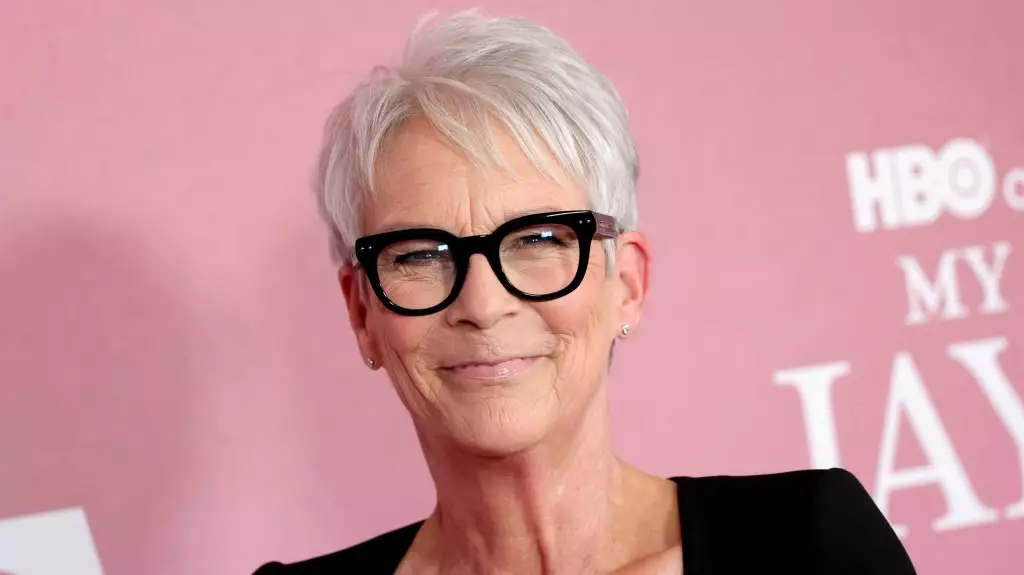Hollywood’s obsession with youth and beauty is an insidious cultural phenomenon that devalues experience, depth, and authenticity, especially in women. For decades, aging women in the entertainment industry have been systematically pushed aside, their careers abruptly curtailed as if their value diminishes with age. Jamie Lee Curtis’s candid reflections on her parents’ decline mirror a broader societal failure to embrace aging as a natural, dignified process. By criticizing Hollywood’s brutal rejection of older actresses, Curtis isn’t merely lamenting personal loss—she’s highlighting a systemic problem rooted in superficiality and misogyny. This industry, which profits immensely from women’s images at their most youthful, profits from misrepresenting aging as something to fear and fight against, echoing a culture that equates worth with elasticity and a wrinkle-free visage.
The Cost of Perpetual Youth
Curtis’s outspoken stance against cosmetic surgery and filters underscores a disturbing cultural shift toward artificiality. The rise of cosmetic procedures, social media filters, and a pervasive “youth at all costs” mentality create a dangerous cycle. Women are bombarded with messages that their natural aging process is an aberration—something to be erased or camouflaged. Curtis’s metaphor of “genocide” isn’t hyperbolic; it’s a stark indictment of how current beauty standards have contributed to the disfigurement of generations of women. The industry’s greed, combined with the proliferation of AI-enhanced images, fuels an insidious cycle where authenticity is sacrificed for illusion. This deception is not harmless; it erodes self-esteem, fosters toxicity, and perpetuates harmful stereotypes that equate aging with irrelevance.
A Personal Fight Against Cultural Erasure
Curtis’s decision to self-retire from Hollywood reflects a broader disillusionment with a system that systematically discards women once they cross a certain age threshold. Her experience with her parents underscores the emotional toll of a culture that only values youth, often at the expense of dignity and respect for aging individuals. Her choice to speak out isn’t just about vanity; it’s a urgent appeal to acknowledge the human cost of superficial beauty standards. She advocates for a cultural shift, one that appreciates the richness of experience and the intrinsic beauty that comes with age. Her advocacy isn’t rooted in false resistance but in a genuine desire to challenge the status quo—an industry and society that too often devalue what cannot be monetized.
Reimagining a More Respectful Hollywood
Curtis’s critique is a call for introspection within Hollywood—a plea to pivot away from relentless youth obsession towards more inclusive and respectful representations. The industry needs to embrace aging as an inevitable human journey rather than a flaw to be corrected. Doing so would not only benefit women but would also enrich storytelling, providing characters that embody the complexity of real life. Her upcoming projects—ranging from a “Freaky Friday” sequel to a “Murder, She Wrote” reboot—should serve as examples of Hollywood’s potential to diversify narratives and celebrate all life stages. Moreover, her outspoken stance might inspire fellow actors and creators to reject superficial standards, fostering a culture that values authenticity over artificial perfection.
A Possibility for Change or a Silent Betrayal?
The question remains whether Hollywood can truly overhaul its youth-obsessed culture or if it’s doomed to repeat its superficial patterns. Curtis’s voice, while courageous, represents a small beacon in a sea of pervasive aesthetic commodification. Without systemic change—an industry that prioritizes stories about real aging, diverse representation, and rejection of unrealistic beauty ideals—she and others will continue to struggle against an environment designed to prioritize fleeting youth over lasting integrity. For a society that claims progress and equality, the continued marginalization of aging women reveals a stark contradiction. Real change will require more than individual resistance; it demands a cultural reform that prizes authenticity and respects human dignity at every age.


Leave a Reply